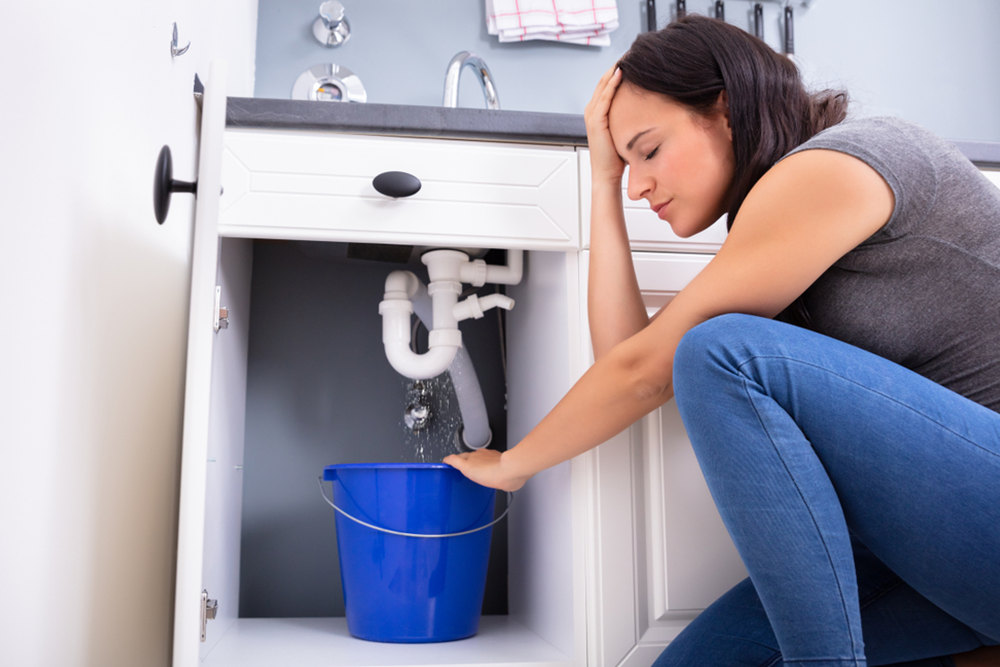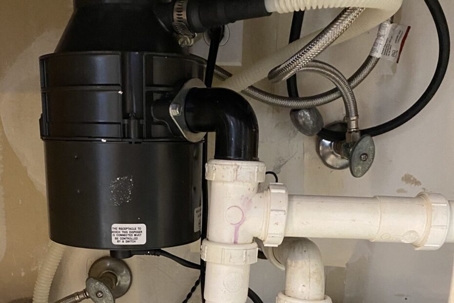Leading Methods for Resolving a Leak in Your Garbage Disposal
Leading Methods for Resolving a Leak in Your Garbage Disposal
Blog Article
Just about everyone maintains their unique conception when it comes to How to fix a pretty consistent leak from my garbage disposal.

Waste disposal unit are important cooking area home appliances that help in throwing away food waste efficiently. However, a leaking garbage disposal can be an aggravating and unpleasant trouble to manage. Thankfully, numerous leakages can be fixed easily with a couple of basic steps. In this article, we will talk about exactly how to take care of a leaking garbage disposal effectively.
Introduction
Garbage disposals are installed under kitchen area sinks and are made to shred food waste into smaller sized pieces, allowing it to travel through the pipes system quickly. While these tools are normally dependable, leakages can take place over time because of damage, loose connections, or damages to the system.
Common Sources Of Leaks in Waste Disposals
Worn Seals and Gaskets
Seals and gaskets play a critical function in protecting against water from leaking out of the waste disposal unit. In time, these components can weaken, causing leakages around the disposal device.
Loose Connections
The connections in between the garbage disposal and the pipes system can come to be loose gradually, causing water to leakage out during operation.
Cracks or Openings in the Disposal System
Physical damage to the garbage disposal, such as cracks or openings in the real estate, can additionally lead to leakages.
Identifying the Source of the Leak
Prior to attempting to deal with a dripping garbage disposal, it is important to determine the source of the leak. This can typically be done via aesthetic examination or by conducting easy examinations.
Visual Assessment
Evaluate the waste disposal unit unit very carefully for any indications of water leakage. Pay very close attention to locations around seals, gaskets, and connection points.
Examining for Leakages
One means to check for leakages is by running water via the disposal system and looking for any type of noticeable signs of leak.
Tools and Materials Needed for Taking Care Of a Dripping Waste Disposal Unit
Prior to starting the repair work process, gather the required devices and products, including a screwdriver, flexible wrench, plumber's putty, substitute seals or gaskets, and epoxy or patching material for fixing fractures or openings.
Step-by-Step Overview to Repairing a Dripping Waste Disposal Unit
Turn Off the Power
Before trying any type of fixings, make certain that the power to the garbage disposal system is switched off to avoid the threat of electrical shock.
Situate the Leakage
Identify the exact place of the leakage and determine the cause.
Tighten up Links
Use a wrench to tighten up any type of loose connections between the disposal device and the plumbing system.
Change Seals or Gaskets
If the leakage results from used seals or gaskets, get rid of the old components and change them with brand-new ones.
Patching Cracks or Openings
For splits or openings in the disposal device, use epoxy or a suitable patching material to secure the damaged area.
Testing the Garbage Disposal After Repair Service
As soon as the repair service is complete, check the waste disposal unit by running water with it to ensure that the leak has actually been fixed.
Preventive Upkeep Tips to Prevent Future Leaks
To avoid future leaks, it is important to execute regular upkeep on your waste disposal unit. This includes maintaining it tidy, staying clear of placing non-food items or difficult objects down the disposal, and occasionally looking for leaks or other issues.
Final thought
In conclusion, fixing a dripping garbage disposal is a reasonably uncomplicated process that can be finished with basic tools and materials. By complying with the steps laid out in this post and exercising precautionary upkeep, you can maintain your waste disposal unit in good working condition and avoid costly repair services in the future.
HERE’S HOW TO FIX YOUR GARBAGE DISPOSAL
WHAT TO DO IF SOMETHING IS STUCK IN YOUR GARBAGE DISPOSAL
If the impeller won’t turn, there’s probably something stuck in the disposal. It could be a steak bone or peach pit, although plumbers report pulling all sorts of inappropriate objects out of disposals, such as bottle caps or aluminum foil. Make sure power to the disposal is off, and look inside to see if you can see the source of the jam.
Never stick your fingers in a disposal. Pull out anything you see with tongs or pliers.
If the disposal still won’t work, it may be time to call a plumber or consider buying a new disposal. GEM Plumbing & Heating is here for all of your garbage disposal needs.
WHAT TO DO IF YOUR GARBAGE DISPOSAL DRAIN IS CLOGGED
Take everything out from underneath your sink and put a bucket or other container under your disposal to catch any water that drains out. Disconnect your disposal from the power supply. If it’s plugged into a wall outlet, unplug it. If it’s hardwired into an electrical box, go to the electrical panel and turn off the breaker for the disposal. Pour ¼ cup of baking soda into the drain, followed by ½ cup of white vinegar. Give the solution a few minutes to fizz and do its work. Look into the disposal with a flashlight to see if you can see an object that might be causing the clog. If you see it, remove it using tongs or pliers. MORE TIPS ON DEALING WITH A CLOGGED GARBAGE DISPOSAL
Never use drain cleaner in a garbage disposal. It can damage the plastic parts inside the disposal. You can also be splashed with the caustic liquid while working to clear the clog. Beware! Never stick your fingers into a garbage disposal. Trust us — not a good idea. In many instances, your dishwasher drains through your garbage disposal. This allows the disposal to grind any large food particles that may be drained out of your dishwasher. There are some jurisdictions, however, where the plumbing code prohibits such a connection. WHAT TO DO WHEN YOUR DISHWASHER DRAINS THROUGH THE DISPOSAL
Run some water in the sink so your plunger has at least a ½-inch of water to create a seal and plunge vigorously up and down several times. You may need to repeat this several times. Run hot water down the drain to clear any residue that remains.

I hope you liked our post on Why Is . Thanks so much for taking a few minutes to browse our post. For those who enjoyed reading our blog posting if you please make sure you remember to share it. Many thanks for your time. Visit us again soon.
Click Here Report this page